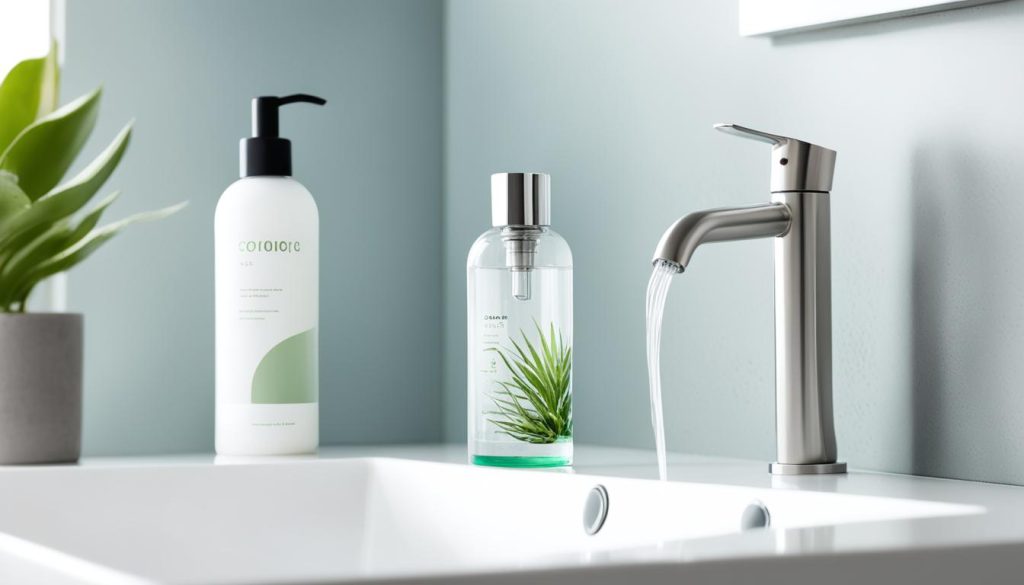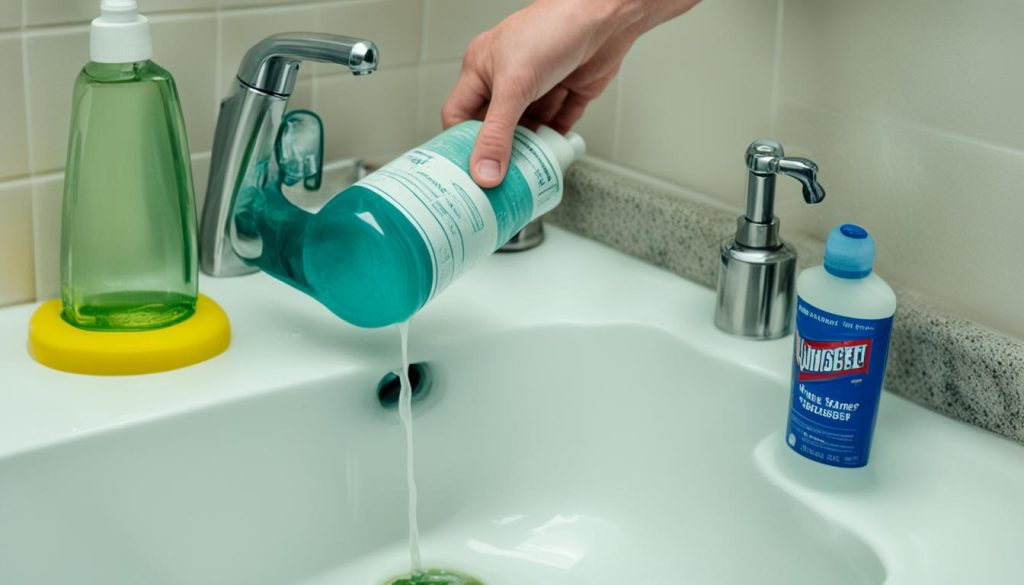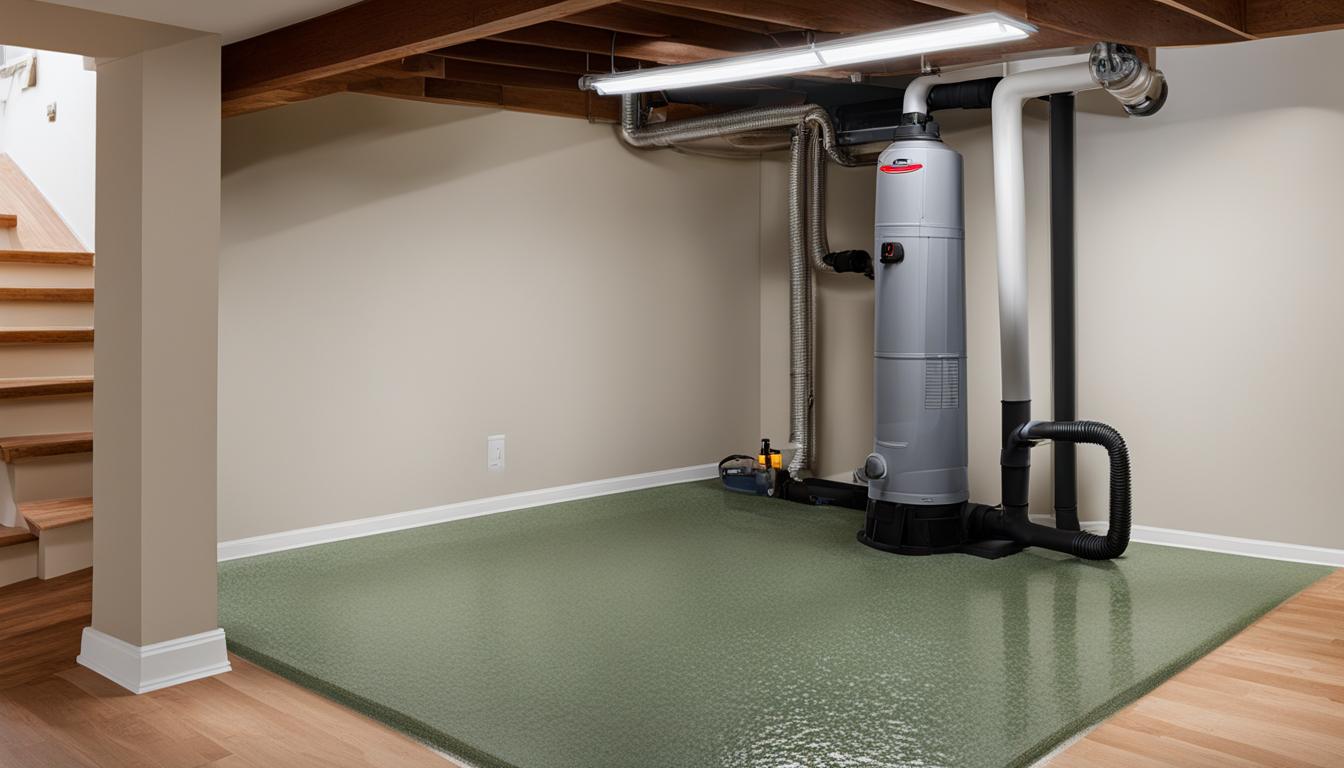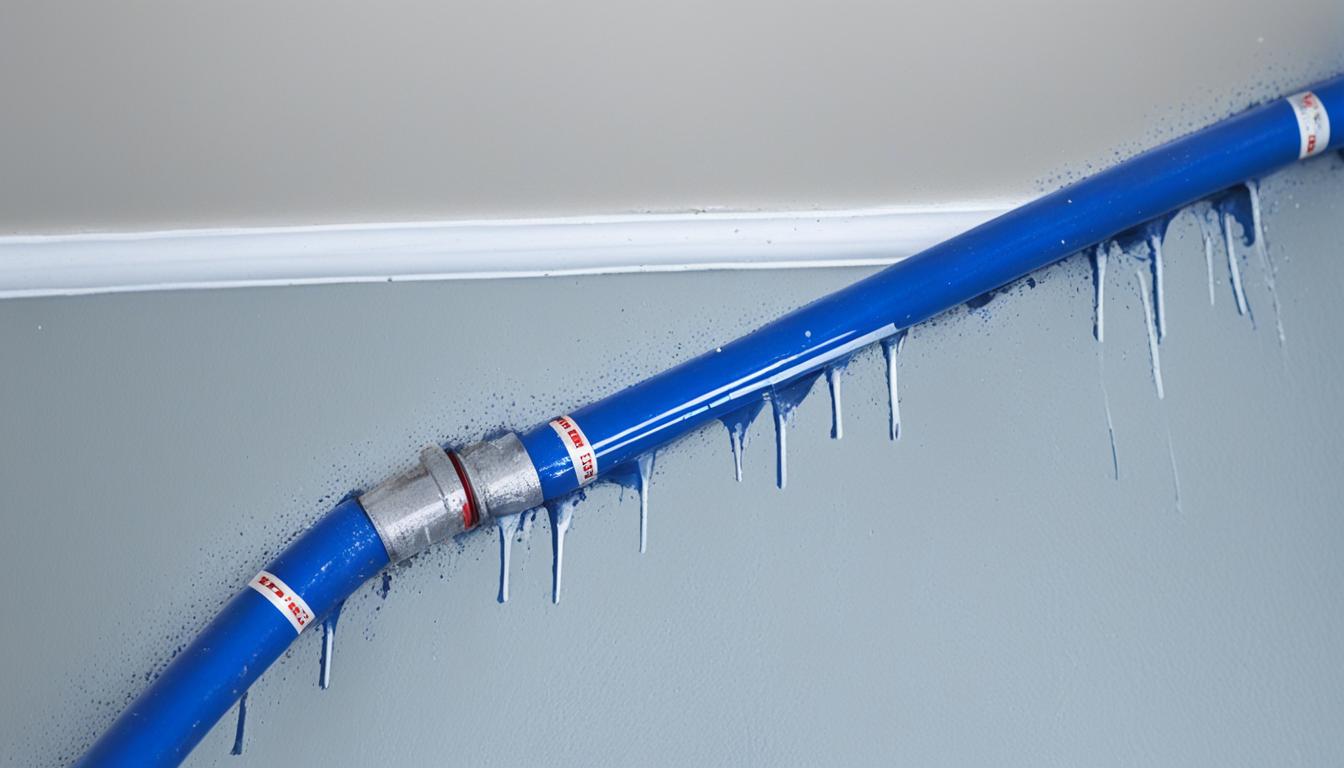Quick Fix for Your Clogged Drain Dilemma
Did you know that clogged drains are a common plumbing issue that can lead to sewer backups? In fact, it is estimated that more than 20% of all plumbing service calls are related to drain blockages. Whether it’s a small clog caused by everyday debris or a more severe blockage deep within your pipes, dealing with a clogged drain can be frustrating and inconvenient.
Key Takeaways:
- Ingredients in bath bombs, such as petals, oils, butters, and colorants, can contribute to clogged drains.
- Preventive measures such as pre-rinsing the tub and using a drain screen can help prevent clogs.
- DIY home hacks like boiling water, baking soda and vinegar, plunging, and using a wire coat hanger hook can help clear minor clogs.
- If DIY methods do not work, it may be necessary to call a professional plumber for severe drain blockages.
- Avoid using chemical drain cleaners as they can damage pipes and be harmful to the environment.
The Joy and Risk of Bath Bombs
Bath bombs have become incredibly popular due to their vibrant colors and aromatic scents. The experience of dropping a bath bomb into your tub and watching it fizz and release its fragrance is truly delightful. However, it’s important to understand the potential risks associated with these indulgent bath products.
While bath bombs can enhance your bathing experience, they can also contribute to drain clogs. The ingredients used in bath bombs, such as petals, oils, butters, and colorants, may seem harmless, but they can accumulate in your drain and combine with other debris, leading to blockages.
One of the main culprits for drain clogs caused by bath bombs is the breakdown and disintegration of flower petals and botanicals in water. These delicate ingredients break down into tiny fragments that, when they come together with other debris, can form stubborn clogs.
To reduce the risk of drain blockages caused by bath bombs, it’s important to be mindful of the quantity of ingredients used. Using an excessive amount of petals or oils can increase the chances of clogs. Additionally, thoroughly cleaning the tub and drain after each use is essential to prevent the build-up of residual ingredients and debris.
By taking these precautions, you can continue to enjoy the joy of bath bombs without worrying about drain blockages. Below is a visual representation of the potential risk of bath bombs and the factors that contribute to drain clogs:
| Bath Bomb Ingredients | Accumulation in Drain | Drain Clogs |
|---|---|---|
| Petals | Accumulate and combine with other debris | Contribute to stubborn blockages |
| Oils | Build-up in drain pipes | Obstruct water flow and cause clogs |
| Butters | Stickiness leads to debris entrapment | Result in slow draining and clogs |
| Colorants | Combine with other substances in the drain | Form clumps that block the flow of water |
It’s crucial to strike a balance between enjoying the pleasure of bath bombs and being mindful of the potential risks they pose to your plumbing system. By following these guidelines and proactively maintaining your drains, you can continue to indulge in luxurious bath bomb baths without worrying about drain blockages.
Preventive Measures for Clear Drains
Taking preventive measures is essential to ensure your drains remain clear and free from clogs caused by bath bomb baths. By implementing a few simple practices, you can maintain a healthy plumbing system and avoid the hassle of dealing with drain blockages.
1. Pre-rinse the Tub
Before indulging in a relaxing bath bomb soak, it’s a good idea to pre-rinse the tub. This helps remove any debris or loose particles that may contribute to clogs. A quick wipe-down with a sponge or cloth can make a significant difference in preventing drain blockages.
2. Use a Drain Screen
A drain screen is a handy tool that can effectively prevent hair, soap scum, and other large particles from entering the drain. By placing a drain screen over the drain opening, you can catch these potential clog-causing culprits and easily remove them after each bath. It’s a simple yet effective preventive measure.
3. Break Bath Bombs in Half
When using bath bombs, consider breaking them in half before dropping them into the water. By doing so, you reduce the amount of ingredients introduced into the tub, minimizing the risk of accumulation in the drain. This small step can go a long way in maintaining clear drain passages.
4. Rinse and Wipe the Tub
After enjoying your bath bomb bath, take a few moments to rinse the tub thoroughly and wipe away any residue. This practice helps remove any remaining bath bomb ingredients and prevents them from clinging to the walls of the drain. Regularly rinsing and wiping the tub promotes clear drains and ensures a clean bathing experience.
5. Regular DIY Drain Cleaning
Maintaining clear drains also involves regular DIY drain cleaning. One effective method is using a mixture of baking soda and vinegar. Simply pour half a cup of baking soda into the drain, followed by a cup of vinegar. Let the mixture sit for about 30 minutes before flushing it away with hot water. This DIY drain cleaning solution helps prevent clogs by dissolving accumulated debris and keeping your drains flowing smoothly.
By following these preventive measures and incorporating regular DIY drain cleaning into your routine, you can enjoy bath bomb baths without worrying about drain blockages. These simple steps will help maintain the efficiency of your plumbing system and ensure a hassle-free bathing experience.
DIY Home Hacks for Clogged Drains
When you encounter a clogged drain, there are several DIY home hacks you can try before calling a professional plumber. These simple yet effective methods can help you clear the blockage and restore the flow of water in your drains.
Boiling Water
One of the easiest and most commonly used DIY methods for clearing minor clogs is pouring boiling water down the drain. This method is particularly effective for breaking down soap scum and grease buildup that can obstruct the flow of water.
Baking Soda and Vinegar
A mixture of baking soda and vinegar can be a powerful solution for dislodging clogs caused by fats and greasy substances. Start by pouring half a cup of baking soda into the drain, followed by half a cup of vinegar. Let the mixture fizz for a few minutes, then flush it down with boiling water.
Plunger
If you have a stubborn clog that is not clearing with boiling water or baking soda and vinegar, using a plunger can help create pressure to dislodge the blockage. Make sure to cover the overflow opening in sinks or second drains to create a tight seal, and then vigorously plunge up and down to create suction and remove the clog.
Wire Coat Hanger Hook
A wire coat hanger can be transformed into a useful tool for removing hair and debris from clogged drains. Straighten out the hanger and create a small hook at one end. Insert the hook into the drain and gently twist and pull to snag and extract the clog-causing materials.
Enzyme Drain Cleaners
Enzyme drain cleaners are a more environmentally-friendly and effective alternative to chemical drain cleaners. These cleaners contain enzymes that break down organic materials causing the clog, making them a safe and efficient option for clearing drains.
Remember to avoid using chemical drain cleaners, as they can not only damage your pipes but also pose a risk to the environment.
| DIY Home Hack | Effectiveness | Difficulty |
|---|---|---|
| Boiling Water | ★★★☆☆ | ★☆☆☆☆ |
| Baking Soda and Vinegar | ★★★☆☆ | ★★☆☆☆ |
| Plunger | ★★★★☆ | ★★☆☆☆ |
| Wire Coat Hanger Hook | ★★☆☆☆ | ★☆☆☆☆ |
| Enzyme Drain Cleaners | ★★★★☆ | ★☆☆☆☆ |
When to Call a Professional Plumber
If you’ve tried various DIY methods to unclog your drain and still face the same issue repeatedly, it may be time to call in the assistance of a professional plumber. A professional plumber possesses the expertise and specialized equipment necessary to tackle even the most stubborn drain blockages.
Repeated clogs can indicate a more significant underlying problem in your plumbing system. A professional plumber will be able to diagnose the root cause of the issue and provide an effective solution. Their use of advanced tools like jet blasters and CCTV cameras ensures a thorough inspection and accurate identification of the problem.
Attempting DIY methods without the necessary knowledge and physical ability can worsen the situation and even lead to injury. Moreover, chemically-based drain cleaners should be avoided as they can harm your pipes and release harmful fumes into your home. By seeking professional help, you can ensure the safety of your plumbing system and your well-being.
Professional plumbers are especially necessary for severe drain blockages that refuse to budge. These professionals have the experience to handle even the most challenging situations with efficiency and skill. Don’t hesitate to reach out to a professional plumber when faced with severe drain blockages to save yourself from unnecessary stress and potential damage.
- Investing Wisely: How Windows & Doors in Boost Property Value and Financial Health - April 24, 2025
- The Financial Impact of Personal Injuries: Why Legal Help Matters for Business Owners - April 16, 2025
- The Hidden Financial Costs of Domestic Assault: What Business Owners Need to Know - April 16, 2025














